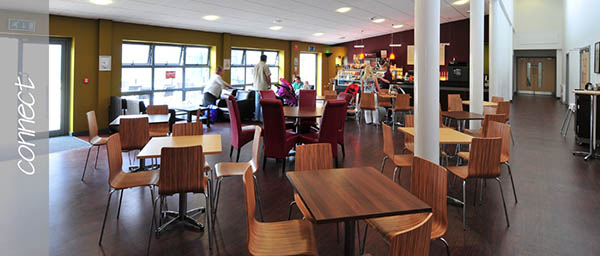An X-Ray imaging specialist is on the cusp of transforming into a multi-million pound business as a number of large projects bring its cutting-edge technology closer to market.
IBEX Innovations is expanding into bigger, custom-designed offices on County Durham science park NETPark (North East Technology Park) to accommodate huge growth over the next few years – which will see IBEX shift into profitability and double its highly skilled workforce.
Chief executive, Dr Neil Loxley, said the relocation into one of the new Explorer units on Sedgefield-based NETPark, which is managed by Business Durham, the economic development organisation for County Durham, will be instrumental to IBEX’s future success.
Said Dr Loxley: “We have had a great deal of input into the design and layout of the office and laboratory, which will take us through the next five years of growth comfortably and allow us to increase our workforce from 18 to about 30 or 35.
“The quality of the facilities at NETPark and the attitude of staff is first class. It has a really dynamic, innovative atmosphere.”
IBEX has developed and patented x-ray detector technology that can be retrofitted to existing x-ray machinery to significantly improve the detection of defects and impurities in the materials being imaged.
Its technology, which acts like a colour filter to bring out extra information on an x-ray image, can be applied in multiple markets, including food inspection, bomb detection and medical radiography, and the company is making considerable headway in all of these areas.
Most significantly, IBEX is working with a number of NHS trusts to demonstrate how its technology can help hospitals improve the detection rates and diagnosis of osteoporosis, a bone disease which affects some three million people in the UK and is the highest cause of injury-related deaths.
By allowing an x-ray to safely and reliably give a measure of bone density and bone health – something a standard x-ray image cannot currently do – Dr Loxley said IBEX’s technology would bring substantial cost savings to the NHS and massively streamline the referral process for patients.
He said: “This is a huge opportunity for us. We estimate 60,000 of these basic hospital x-ray systems are sold every year, so if we sell a licence to allow each of them to adopt our technology then it will transform IBEX into a multi-million pound business.”
IBEX’s projected growth will see the number of highly skilled scientists, engineers and business professionals it employs rise from 18 to around 24 next year, and to between 30 and 35 by 2020.
Brian Archer, managing director of Business Durham, which works on behalf of Durham County Council, said: “IBEX Innovations is a prime example of an innovative, world-class technology company thriving on NETPark; making the most of the facilities available and employing a skilled workforce.
Cllr Carl Marshall, Durham County Council’s Cabinet member for economic regeneration, said: “It’s a real pleasure to see such an exciting company like IBEX innovations take root in County Durham, and I can’t wait to see them go from strength to strength.
While IBEX’s primary focus is on the medical imaging market, its technology is also infiltrating the security, food inspection and electronics industries.
The firm is in the final stages of incorporating its technology into portable security scanners. It allows the scanners, used by police and bomb disposal specialists, to extract more information and differentiate between materials such as plastic and metal.
“The IBEX technology adds a new dimension, so you can get the kind of information you achieve from a top-end airport security scanner in a portable security system used by first responders assessing a suspect package,” added Dr Loxley.
Another area of growth for IBEX is in the food industry. The company is currently working with a large food inspection company to integrate its technology into x-ray inspection systems used to detect contamination, such as bone in chicken or plastic in chocolate, which in a standard x-ray are difficult to distinguish.
The construction of NETPark’s Explorer building is part of ambitious plans to create additional space for research and development companies which need room to prototype and scale up to manufacture on site. NETPark is already home to some of the world’s most innovative companies and the development forms part of the 10-year strategy for NETPark, which includes creating 3,000 jobs and adding another £400m to the region’s GVA.











